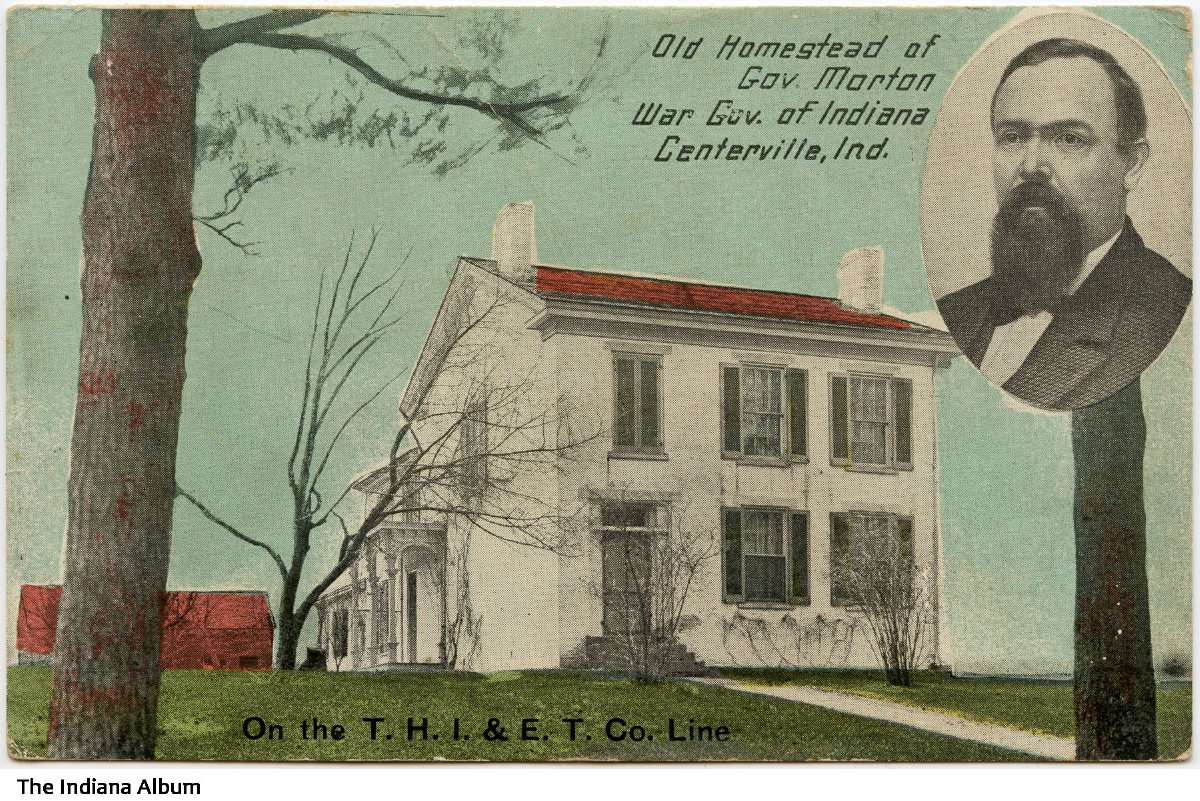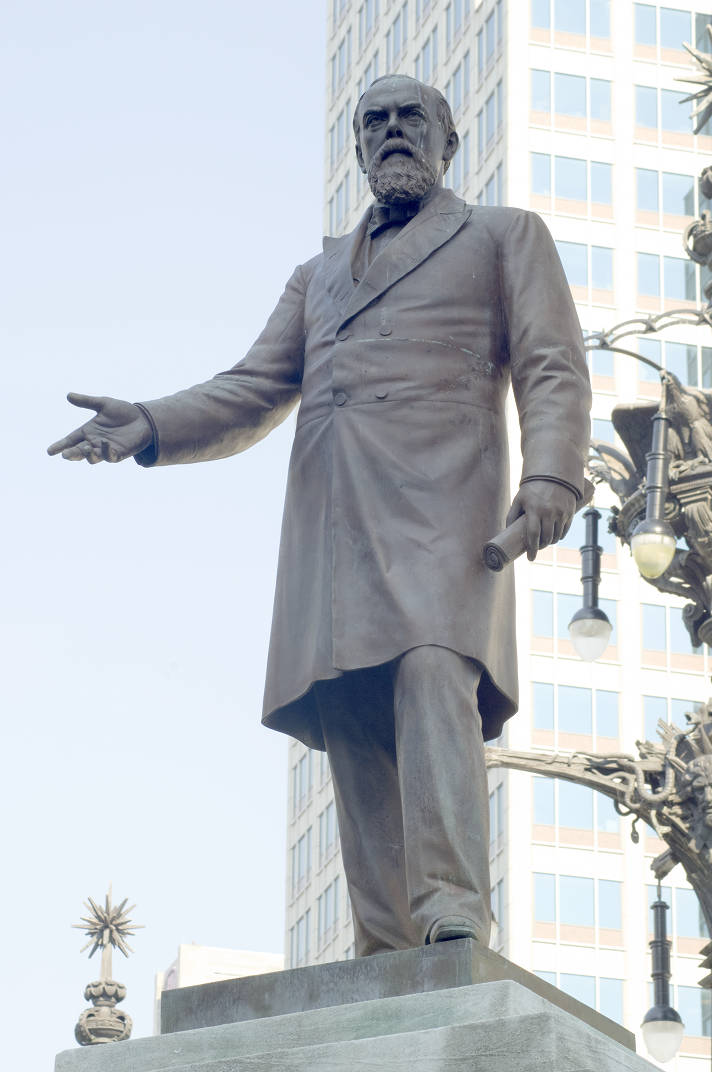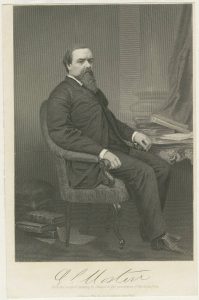(Aug. 4, 1823-Nov. 1, 1877). A Wayne County, Indiana native, Oliver P. Morton spent two years at Miami University (Ohio) and one term at Cincinnati College Law School. He read law and established his practice at Centerville.
Morton was originally a Democrat but abandoned the party in 1854 over the Kansas-Nebraska Act. He helped launch the state and was its first nominee for governor in 1856. Four years later, he won election as lieutenant governor. When Governor Henry Lane resigned to enter the U.S. Senate in early 1861, Morton became governor.
In the secession crisis, Morton opposed any compromise with the rebellious southern states. At the fall of Fort Sumter, he offered 10,000 troops to the federal government. Thereafter, he worked tirelessly to fill Indiana’s quotas. The rendezvous point at Indianapolis for soldiers headed for federal service was .

Earning the sobriquet “the soldiers’ friend,” Morton took deep interest in the welfare of Hoosier troops and devised ingenious ways of supplying their needs when regular channels failed. To keep them supplied with ammunition, the governor, on his own authority, established an arsenal in Indianapolis that not only supplied Indiana soldiers but also sold ammunition to the federal government.
After the Democrats won the 1862 legislative elections, the General Assembly sought to transfer the governor’s military powers to other Democratic, state officials. However, at Morton’s urging, a sufficient number of Republican legislators abandoned Indianapolis for Madison, thus preventing a quorum and frustrating passage of the proposal.
When the legislature adjourned without making appropriations, Morton operated the state on his own with funds generated by the state arsenal, appropriated by county governments, and borrowed from a variety of sources including the federal government.
Historians often have characterized Morton as a political opportunist who tended to magnify the threat from allegedly treasonous secret societies, especially during election years, and countenanced the suppression of opposition newspapers as well as the arrest and trial of individuals critical of his and Lincoln’s administrations. New research overturns this long-standing interpretation, finding instead that secret organizations indeed posed a significant threat to the Union war effort. They were not concoctions of Republican political leaders intent on smearing Democratic opponents as often has been alleged. Military commanders and figures such as Governor Morton were sincere in their assessments of the conspirators.

In 1864, Morton won a second term as governor and was elected U.S. senator three years later. In the Senate, he supported Radical Reconstruction and championed the rights of Black Americans in the South long after other Republicans cooled on the idea. Originally a hard-money man, he advocated inflation in the wake of the Panic of 1873. With strong support from southern Republicans, Morton sought the 1876 presidential nomination but lost to Rutherford B. Hayes in the convention.
Morton died in Indianapolis in 1877. A statute by Austrian artist , Oliver P. Morton and Reliefs, located on the east side of the Indiana Statehouse in Indianapolis, Indiana, at the intersection of North Capitol Avenue and West Market Street, was installed in 1907.

Help improve this entry
Contribute information, offer corrections, suggest images.
You can also recommend new entries related to this topic.





